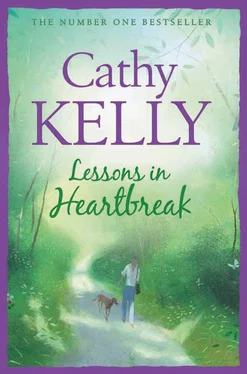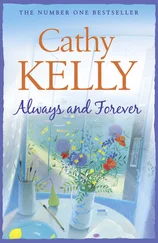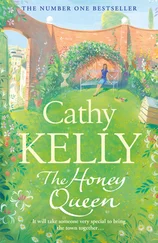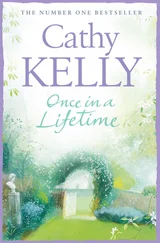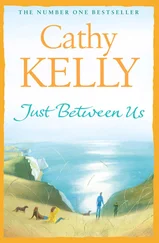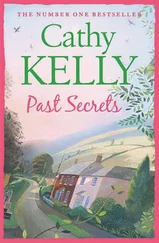It was over forty years since she’d had that realisation. She’d been fifteen when she discovered that everyone else didn’t feel the same, that she was different.
And then, in The Fly Leaf bookshop in Tamarin, Anneliese Kennedy had that familiar, jarring sensation of darkness in her head, and something else, the onset of sheer panic. Behind her eyes came a thrumming sensation, like drums beating far away. A slow, constant noise that wasn’t real – she knew that – but felt more real to her than anything else at that exact moment. She hadn’t heard it in so long, normally only heard it in nightmares now, but she knew what it was: fear and panic.
She’d once read that certain types of situation made the lizard brain dominate. The lizard brain was the core survival part of human beings, lower down the totem pole than the limbic system and the cerebral cortex.
The lizard kicked into place when people reached a deep primal fear. There had been so many other hugely long medical words in the article that Anneliese had slightly tuned out, but she’d remembered that bit: that the lizard brain was basic survival and came out when the person was mortally threatened.
Like now. When a panic attack swept over her with raging force. No sooner had she thought the words, than the breathlessness hit and she began to wheeze, feeling her chest tightening. She couldn’t breathe, her heart was racing.
Anneliese moved so quickly that she bumped into a man bending over looking at the sports books.
‘Sorry,’ she half gasped, whisking past him. She had to get out and home. She needed to be in a safe place so she could make this fear and darkness go away.
It was years since she’d had a panic attack, years. She’d forgotten how horrific they were, how she always felt as if she was going to die.
Her hands were shaking so much, it was hard to get her keys from her bag, almost impossible to keep the key for the car at the right angle to slip it into the lock. But she did. Safe, she was a bit safe.
She sat in the driver’s seat, shaking, trying to calm her breath.
Breathe in, count to four, breathe out.
When she’d felt recovered enough, she started the engine, keeping the volume turned up loud on talk radio, willing the discussion to block out her own head. She didn’t want to think.
The house was silent when she got there – not the silence of a home where another person might be back soon, but the deadening silence of a place where only one person lived. Anneliese made herself a mug of herbal tea, the Tranquility tea that Edward used to gently tease her about. About to put the pack back in the cupboard, she took another teabag and stuck that in the mug too. She needed a double dose of tranquillity.
Then, she took the mug and an old fleecy blanket outside to sit on the deck.
With her feet curled up under her, mug in her hand and the blanket wrapped around her, Anneliese stared out at the crashing waves and let herself breathe slowly.
Breathe. In and out. Slowly and deeply. Concentrate on each breath, let your lungs fill and exhale slowly through your nose. In and out. That was all you had to do every day – breathe.
Shit, shit , it wasn’t working. Despite the deep breathing, she could feel her heartbeat fluttering along at speed, and the darkness was still in the back of her head, coming closer now.
Fuck you, Edward, for doing this to me, Anneliese thought bitterly.
She huddled into the fleecy blanket for warmth.
She was not going back on the tablets, not again.
Edward had been so good and understanding about her depression, even if he’d never entirely got it.
‘I feel a bit sad too sometimes, you know,’ he’d said early on in their marriage. ‘It’s not the same as you, love, but I understand, or at least, I’m trying to.’
Anneliese, who’d chosen her words carefully when she talked about being depressed so that she didn’t scare him or make him think he was married to a complete nutcase who needed access to a straitjacket at all times, had to stop herself from laughing out loud.
He couldn’t know or understand that depression was a part of her: she could go about her daily life like anybody else but while some people had freckles or lovely olive skin as part of their genetic make-up, she had depression. A part of her: sometimes there, sometimes not. She could go months, years, without feeling that overwhelming darkness, but when she did, it was far more than feeling a bit sad. And yet she loved him, loved him for trying.
‘I love you, you darling man,’ she said to him fiercely. He’d laughed too and hugged her, and Anneliese had ended up sitting on his lap, their arms wrapped round each other, and she’d felt really loved.
This kind, complex man didn’t really understand what she went through, but he was doing his best. That was love: trying to understand your mate, even if the understanding was outside your scope.
She remembered talking to Nell about it too. That hurt: thinking of bloody Nell knowing about Anneliese’s inner pain and then still walking off with her husband. Anneliese shuddered under her fleecy blanket.
She was beginning to hate Nell.
‘How can you be feeling like that, you know, down , and still go out and be normal?’ Nell had asked once, when Beth was a little girl and Anneliese had brought her to a classmate’s birthday party and gone home to cry for two straight hours, which was where Nell had found her when she dropped round.
‘You put your game face on,’ Anneliese said simply, her face raw with tears. ‘You can’t sit in a corner and stare into nothingness when you’ve a child. You just can’t.’
Not that she hadn’t felt like it many times, but mother love was a potent force. Anneliese might have had many days where she’d have liked to stay in bed, drag the duvet around her like armour and sit out the bleakness. But she couldn’t do that to her daughter.
When Beth grew older and it became clear that she’d inherited her mother’s depression just as she’d inherited her indigo eyes, protecting Beth had become Anneliese’s life. Beth, who needed huge love and attention, came highest on the totem pole.
Next, came Anneliese herself, sometimes staying on top of it all, sometimes falling into the pit so that she’d reluctantly have to go to the doctor and take some of those damned antidepressants, and she hated them. It was like admitting to failure and if she read one more article that said depression was like diabetes and if you had diabetes, you wouldn’t mind taking insulin to fix it, then she’d kill someone.
Edward, dear kind Edward, had come a very definite third in his wife’s list of priorities.
Women’s first love and concern would always be their children, if they had them, Anneliese had realised, while men’s would be their women. The two equations weren’t even on the same page.
Had that driven Edward away – always being third in their marriage? How could he not have known that he wasn’t third through choice but because of the rules of simple survival?
Anneliese sighed and stared out at the view that sold the house to her and Edward all those years ago. In the sharp light, Milsean Bay was like a mirror set in a valley that changed from white sand to the peaty green of the fields.
Beyond lay the Atlantic Ocean where seagulls swooped and flecks of white foam whisked up dramatically. Be careful , roared the water. It was a lesson that locals never forgot. Tourists took boats out to explore the sheltered bay, and kidded themselves that the waters were safe, only to have to be rescued when their boats were swept out into the fierce tempest of the Atlantic.
Basking sharks could sometimes be seen from the cliffs above the point, where a dolmen stood in grandeur. Anneliese could remember the day she and Edward had taken Beth to see the dolmen when she was small, wanting to instil a sense of pride in her.
Читать дальше
